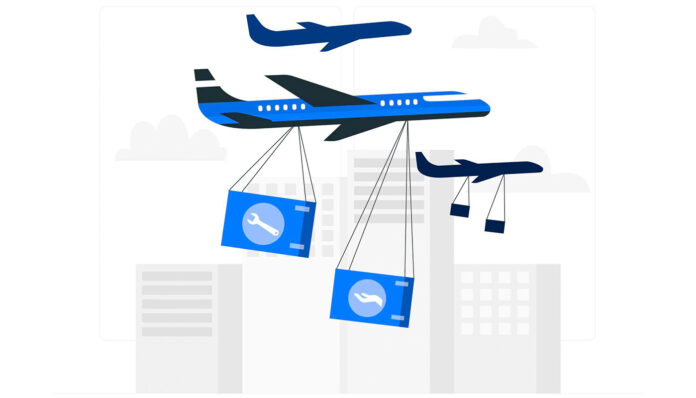Chapter 14 – Transport policy

What is being negotiated?
The legal regulations that will ensure the smooth flow of people, goods, capital and information in the EU are integrated into this very complex and challenging negotiating chapter. Aligning Montenegro’s transport policy with EU acquis is one of the biggest challenges in the EU accession process. Transport policy is governed by Chapter VI, Articles 90-100 of the Treaty on the Functioning of the European Union or the Lisbon Treaty. It aims is to by setting framework conditions for the various branches of transport, enable the rational transport of goods and passengers within the EU as well as on international level, further removing restrictions between countries. It also contributes to a more balanced development of the economy at the EU as well as its expansion, price stability, improving passenger transport comfort and living standards of the population.
The aim of the European policy in this chapter is to respond to the growing mobility of citizens, goods and services within the EU. The EU legislations in this area create conditions for safety, secure and efficient transport, improved quality of transport services and improvement of existing and construction of new transport infrastructure. Standards for reducing the environmental impact of transport, as well as more effective protection of passengers’ rights and the implementation of social legislation defines with the legal framework of this chapter.
Sub-areas
The acquis in this chapter consists of a sub-area that is complementary to one another:
- Road traffic
- Rail traffic
- Air traffic
- Maritime traffic and
- Inland waterway traffic
EU road policy aims to promote the efficient provision of goods and passenger services and to create fair conditions for competitiveness, also to promote and harmonize safer and more environmentally friendly standards, to ensure a level of fiscal and social coherence and to guarantee that road transport rules are implemented effectively and without discrimination.
Rail transport includes a rail networks across the EU aimed at developing a strong and competitive rail industry, rail market opening, improving the interoperability and security of national networks, and developing rail infrastructure.
The common EU aviation policy aims at making Europe the safest air space in the world.
Maritime transport enables trade and contacts between all European nations, ensures the security of supply of energy, and food and it’s a leading employment and income stream for the European economy. The European Commission’s objective is to protect Europe with very strict safety rules preventing sub-standard shipping, reducing the risk of serious maritime accidents and minimizing the environmental impact of maritime transport. Also, an important activity relates to the social dimension, care for working conditions, health and safety issues and the professional qualifications of mariners.
Inland waterway transport plays an important role for the transport of goods in Europe. This type of traffic is increasingly used because of its energy efficiency and mainly for increased exploitation. The European Commission aims to promote and strengthen the competitive position of inland waterways in the transport system, and to facilitate its integration into the intermodal logistics chain.
When was the chapter opened?
The chapter 14 was opened on 21th December 2015 at the Intergovernmental Conference in Brisel.
Closing benchmarks
Within negotiation chapter 14, Montenegro needs to fulfill the following benchmarks:
- Montenegro aligns with the EU acquis concerning road charging, social acquis in road transport, new rules on weights and dimensions of heavy goods vehicles and vehicles transporting passengers as well as the common rules for access to the profession of road transport operator, to the international road haulage market and to the international market for coach and bus services;
- Montenegro ensures a competent, independent and effective railway regulatory body and safety authority and it ensures alignment with EU safety and interoperability standards;
- Montenegro aligns with the acquis on passenger rights in all modes of transport;
- Montenegro aligns fully with the acquis on air traffic management;
What are the activities in the coming period?
In the upcoming period, further alignment with European regulations and standards will continue, resulting in improved quality of transport services, safer transportation, better infrastructure, and more effective protection of passenger rights. This alignment will be achieved through the adoption of key legislation in the field of transport, including road, rail, and maritime transport, as well as the adoption of strategies related to transport development.
What is the benefit to Montenegro of this chapter?
Membership in the European Union will ensure increasing road safety as well as better protection of passengers in all types of traffic. When it comes to road traffic, there is greater road safety, the safety of transporting dangerous goods, and the introduction of smart tachographs. In rail, one of the benefits is fair access to the market as well as simplification of licensing procedures. Air traffic is also improving the regulation in the field of air navigation services and airspace management.
Chapter 14 - Working Group
Nenad Vitomirović
Negotiatior for Cluster 4Ministry of Ecology,Sustainable Development,and Northern Development
Nikola Veljović
Head of the NWGMinistry of Transport
Amina Bajrović Kuč
Secretary of the NWGMinistry of European Affairs

